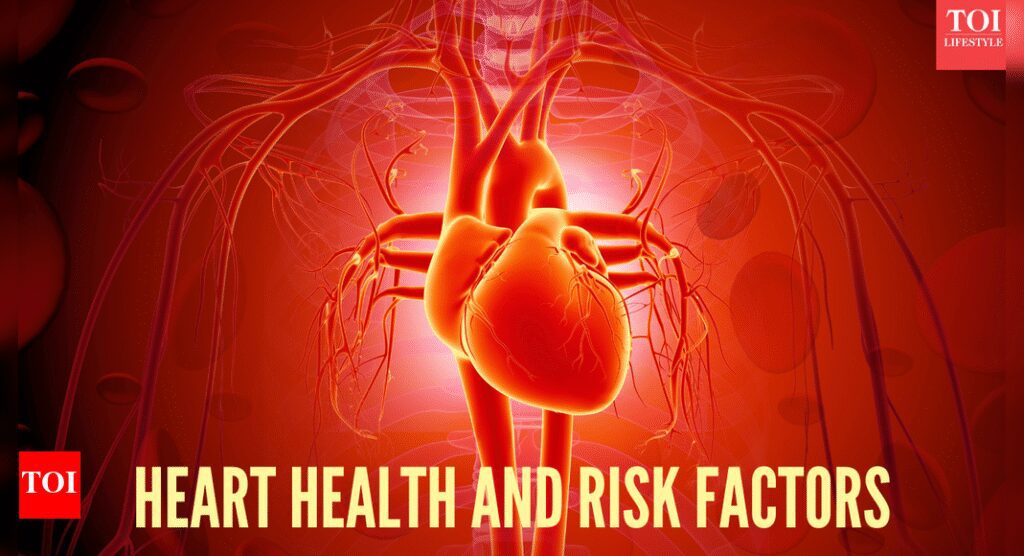Heart attacks continue to be one of the leading causes of death worldwide, despite advances made in medical treatments and technologies. To help prevent such lethal heart conditions, such as stroke, attack or cardiac arrest, cardiologists usually pay much attention to maintaining blood pressure, cholesterol, and other conventional risk factors within normal limits. According to Dr. Dimitry Yaranov, a well-respected heart transplant cardiologist, the key to preventing heart attacks deserves much greater dedication to fundamental life and holistic health principles. Following are the first things he would never do when it comes to preventing heart attacks, with respect to the management of hypertension.
Never neglect the cornerstone of heart health

Dr. Yaranov insists that the building blocks of heart health include so much more than just numbers of blood pressure and cholesterol. Among the cardinal rules he lives by is never to disregard key components such as quality sleep, stress management, clean air, and gut health. These are closely related to cardiovascular health and blood pressure. Poor sleep, for example, disrupts the normal nocturnal blood pressure dip, increasing the risk for hypertension and heart disease. Emotional and chronic stress causes inflammation and raises blood pressure, silently hurting the heart.
However, ignoring these factors for the sake of medication or isolated lab results does more harm than good. A comprehensive approach to sleep hygiene, mental wellbeing, and environmental quality becomes crucial in the prevention of heart attacks.
Avoid extreme or restrictive diets
While managing hypertension and heart disease, nutrition plays an important role. Dr. Yaranov cautions against extreme diets, such as very high-protein or carnivore diets, which some might assume are heart-healthy merely because they reduce carbohydrate intake. These diets can elevate LDL cholesterol and provoke systemic inflammation, increasing the risk of artery blockage and cardiovascular events, even in young and otherwise fit individuals. Instead, his approach advocates for balanced diets rich in nutrients, emphasizing fruits, vegetables, whole grains, lean proteins, and healthy fats. Such diets not only help to regulate blood pressure but also reduce oxidative stress and support the gut microbiome, a vital, often overlooked player in cardiovascular health.
Never push through chronic stress

It is understandable when people today try to “push through” heavy schedules and emotional loads. According to Dr. Yaranov, this attitude is not good for heart health. Stress raises blood pressure temporarily, but frequently enough to cause chronic hypertension and inflammation-major risk factors for heart attacks. Mindfulness, meditation, physical activity, and adequate rest are some of the effective stress management techniques that he should not miss out on in his heart attack prevention strategy. It is also important to say “no” when overwhelmed and set boundaries to reduce emotional overload.
Effect of gut microbiome

Emerging research is showing that many aspects of cardiovascular health, including blood pressure, are influenced by gut microbiome. Dr. Yaranov would never neglect gut health in planning heart attack prevention strategies. A diet high in fiber, fermented foods, and prebiotics helps maintain an appropriate gut flora balance to help modulate blood pressure and lower systemic inflammation. Conversely, poor gut health could contribute to hypertension and vascular disease by promoting inflammation and metabolic dysfunction. It is thus important that digestive well-being be prioritized in holistic heart care.
Avoid unmonitored medication use
While moderate consumption of alcohol may have some cardiovascular benefits, binge drinking-even occasionally-can result in subtle vascular damage and sharply raise blood pressure, increasing the risk for heart attacks. Dr. Yaranov says to avoid such patterns at all costs. Similarly, unmonitored intake of medications or supplements that raise blood pressure can undermine heart health efforts. The communication between patients with hypertension and their health care providers should be open regarding all drugs taken by them, since certain key medications such as NSAIDs, corticosteroids, and some stimulants may raise blood pressure or lead to fluid retention.
Embracing holistic care
By the end of it, Dr. Yaranov’s guiding principle is to treat the patients and not to get better numbers on a blood pressure machine. To offer a personalised approach that includes balanced nutrition, lifestyle interventions and promoting sleep and emotional health, judicious use of medication and regular follow-up, all of which are essential for vascular health and heart function


